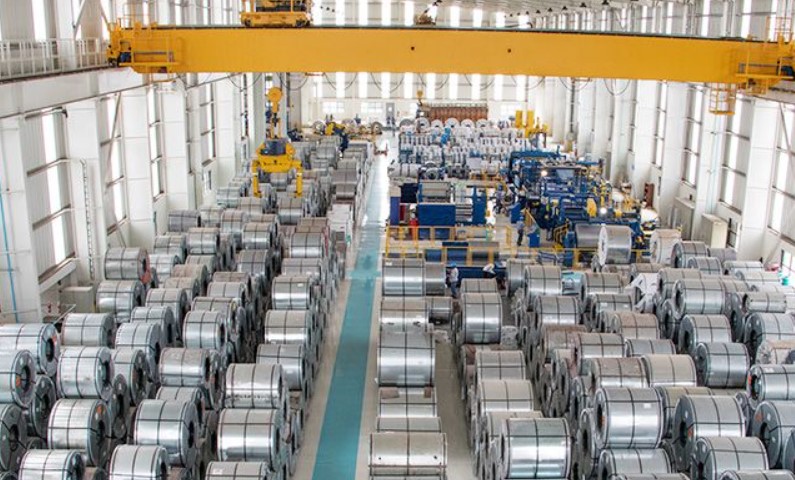JSW Steel, one of the leading steel producers in India, has set an ambitious goal to meet its entire energy requirements from renewable sources as part of its decarbonization efforts. The company aims to achieve a steel-making capacity of 50 million tonnes by the end of the decade, which would require around 10 gigawatts of power. JSW Steel is actively working on a roadmap to attain this target, although it emphasizes the need for government support in the country’s energy transition. Read More Business News on our website.

According to Sajjan Jindal, the billionaire industrialist leading the company, JSW Steel has already secured contracts for 1 gigawatt of renewable energy capacity. In April 2022, the company successfully operationalized a 225-megawatt solar capacity at its Vijayanagar plant, becoming the first steel plant in India to embrace large-scale renewable energy deployment. Jindal stated that JSW Steel aims to reduce its CO2 emissions intensity by 42 percent (compared to the base year of 2005) by 2030.
In addition to sourcing electricity from renewable sources, JSW Steel is also exploring the incorporation of green hydrogen into its direct reduced iron (DRI) plant at Vijayanagar. However, the funding details for these massive investments were not disclosed in the annual report. It is widely speculated that JSW Energy, the power-generating company within the JSW Group, will bear the costs.
JSW Energy recently announced a new strategy for the period of 2023-2030, shifting its focus from pure power generation to energy products and services. The company aims to achieve a generation capacity of 20 gigawatts by 2030 and intends to venture into energy storage, solar PV module manufacturing, and green hydrogen production.
Cholamandalam Securities, in a recent report, predicted that JSW Energy’s capacity would increase from 6.6 gigawatts to 9.77 gigawatts by the end of FY26, with the majority of the expansion coming from renewable sources such as wind, solar, and hydropower projects. By FY26, approximately 61 percent of JSW Energy’s installed capacity will be from renewable energy sources.
While JSW Energy plans to find buyers for its renewable power, the question of who will bear the complete transition costs remains unanswered. Simply switching to renewable energy sources is insufficient to achieve carbon neutrality in the steel industry. One of the significant challenges, both financially and technologically, is to reduce coal usage. Green hydrogen, produced through environmentally friendly processes, could potentially provide a solution.
While some European countries receive partial funding from local governments for the energy transition, similar efforts have not been widely observed in India, according to a steel industry executive.
